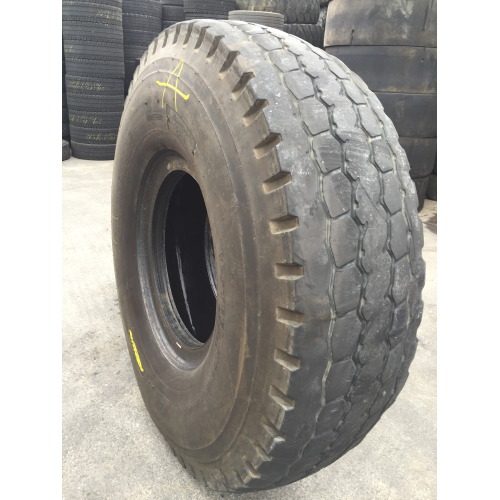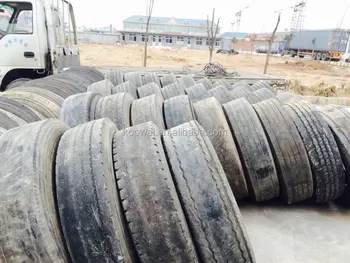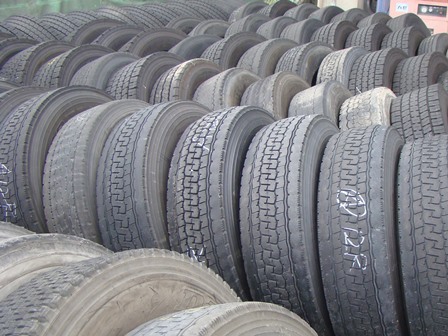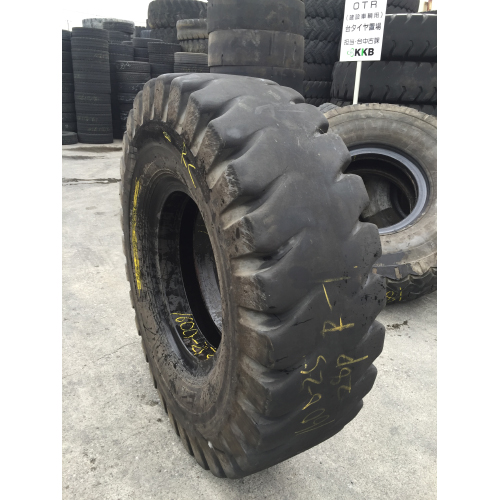The tire casing is the body of the tire and includes components such as the Bead, Sidewall, Body Ply and Innerliner. Basically everything except the Tread and Belt System. The Tire Business Dealer Directory reaches key decision makers researching vendors and products, including Executives, Owners & Purchasing Agents of Independent Tire Dealers, Wholesalers and Distributors, Tire and Wheel Manufacturers, and Tire Repair & Service Providers. Reach this audience by promoting your company in this directory.
Retread is a re-manufacturing process for tires that replace the tread on worn tires. Retreading is applied to casings of spent tires that have been inspected and repaired.[1] It preserves about 90% of the material in spent tires and the material cost is about 20% compared to manufacturing a new one. Retread is not to be confused with remold, its higher quality counterpart.
Applications[edit]
United States[edit]
Some applications for retreaded tires are airplanes, racing cars, buses and delivery trucks. Use of retreaded tires was common historically, but as of 2008, it was seldom used for passenger vehicles, mainly due to discomfort on the road, safety issues and cheaper tire brands surfacing on the market. About 17.6 million retreaded tires were sold in North America in 2006.[2]
Process[edit]
There are two main processes used for retreading tires, called Mold Cure and Pre Cure. Both processes start with the inspection of the tire, followed by non-destructive inspection method such as shearography to locate non-visible damage and embedded debris and nails. Some casings are repaired and some are discarded. Tires can be retreaded multiple times if the casing is in usable condition. Tires used for short delivery vehicles are retreaded more than long haul tires over the life of the tire body. Casings fit for retreading have the old tread buffed away to prepare for retreading.[2]
Material cost for a retreaded tire is about 20% that of making a new tire.[1]About 90% of the original tires by weight is retained in retreaded tires. A 1997 study estimates that then current generation of commercial vehicles tires to last up to 600,000 miles if they're retreaded two to three times. [3]
Pre cure[edit]
Previously prepared tread strip is applied to tire casing with cement. This method allows more flexibility in tire sizes and it is the most commonly used method, but results in a seam where the ends of the strip meet.[2]
Mold cure[edit]
Raw rubber is applied to the tire casing and it is then placed in a mold where tread is formed. A dedicated mold is required for each tire size and tread design.
Bead to Bead molding[edit]
In this subtype, retreading is also applied to the side walls. These tires are given entirely new branding and stamps. [2]
Regulations[edit]
Some jurisdictions have regulations concerning tire retreading.
Europe[edit]
In Europe all retreads, by law, must be manufactured according to EC Regulation 108 (car tires) or 109 (commercial vehicle tires). As part of this regulation all tires must be tested according to the same load and speed criteria as those undergone by new tires.
The Land Fill Directive of 1999 banned tires in landfills in 2003, and banned shredded tires in 2006.[1]
United States[edit]
The Department of Transportation requires marking of a 'DOTR number' which shows the name of the retreader and when it was retreaded. [2]
Safety[edit]
The United States National Highway Traffic Safety Administration recognizes the public perception that retread tires frequently used by heavy vehicles are less safe than new tires as evidenced by tire debris frequently found on highways. The NHTSA is continuing research to determine the proportion of tire debris from retreads in comparison to new tires. Additionally, the NHTSA is researching the cause of tire failure and the crash safety problem posed by tire failures.[4]
Federal Executive Order 13149, signed by President Bill Clinton supports the use of retread tires for economic and environmental efficiency by requiring federal vehicles to use retread tires after original factory equipped tires become non serviceable, but only when 'such products are reasonably available and meet applicable performance standards'.
Environmental impact[edit]
Retread tires in service lower the volume of raw materials required for the manufacturing of a new tire. This includes a pronounced reduction in the use of oil. In fact, the US EPA estimated a greater than 75% savings in oil used for a retread as compared to a new tire. This also means significant reductions in greenhouse gas emissions. A car tire has 40% natural rubber and 60% oil based rubber, a retreading of tires will reduce the need for natural rubber significantly.
In addition to reducing the amount of raw materials extracted, retread tires also minimize the amount of waste that ends up in landfills. The latest figures by the US EPA indicate that over 11.2 M waste tires were dumped into the U.S. municipal solid waste stream. To understand this figure, it is equivalent to lining up passenger tires tread to tread from roughly Los Angeles to San Diego or Philadelphia to Washington DC. Because a retread tire prevents the need for manufacturing a new tire, significant environmental benefits are achieved. [5]
References[edit]
- ^ abc(eds.), Simme Douwe P. Flapper, Jo A.E.E. van Nunen, Luk N. van Wassenhove (2005). Managing closed-loop supply chains. Berlin: Springer. p. 119. ISBN3540272518.CS1 maint: extra text: authors list (link)
- ^ abcdeBodziak, William (2008). Tire Tread and Tire Track Evidence: Recovery and Forensic Examination Practical Aspects of Criminal & Forensic Investigations. CRC Press. p. 90. ISBN978-1420006827.
- ^Madu, ed. by Christian N. (2001). Handbook of environmentally conscious manufacturing. Boston, Mass. [u.a.]: Kluwer Academic Publishers. p. 89. ISBN0792384490.CS1 maint: extra text: authors list (link)
- ^'Archived copy'. Archived from the original on 2013-10-19. Retrieved 2013-10-18.CS1 maint: archived copy as title (link)
- ^'Retread Tires - Learn the Financial and Environmental Benefits'.
External links[edit]

We pay top prices for truck tire casings, used tires for transport trucks, bus, OTR loaders, graders, earthmovers
Buying or selling truck tires in ?
The Tire Price Chart Below for Prices We Pay
YOU GET A FAIR PRICE ON EVERY TIRE - We sort and grade all of the tires we collect, using our Tire Inventory Software. As a buyer or seller, you will know the exact quality and price of every tire before money changes hands. You will never have to worry about paying too much or receiving too little for your tires as a member of the Tire-Trader Exchange.
PICK UP AND DELIVERY - We have trucks traveling to most parts of the United States and Canada on a weekly basis to pick up used tires for retreading, as well as scrap tires for fuel or recycling into crumb rubber products.
We can arrange pick-up and/or delivery of good quality used truck tires and casings to most US states and Canadian provinces, and can arrange container loads to be shipped to any country where trade is permitted. Inside North America, we can arrange pick up and delivery of any size load, but prefer to work with 53-foot trailer loads.
CENTRALLY LOCATED - Our headquarters is located on the US - Canada border at Detroit, Michigan - Windsor, Ontario where we see more than 10,000 commercial trucks every day drive by our front door. If you ever run near Detroit or Windsor, drop in for a free coffee and introduce yourself.
GLOBAL SCOPE - We have affiliates across North, Central and South America as well as in Australia, New Zealand, Europe, Asia, and Africa. So if you need tires for trucks, buses, earthmovers, loaders or other heavy equipment or farm vehicles, we can probably find them for you and get them to you.
ENVIRONMENTALLY CONCERNED - We are dedicated to cleaning up tire piles and support site remediation in order to eliminate the chance of serious tire fires and avoiding unneccessary cases of West Nile Virus which may be carried by mosquitos that hatch inside old tires. Help us to reclaim useful land and clean up the environment by recycling or reusing your old tires.
BIG OR SMALL - WE HANDLE THEM ALL - We can service large trucking fleets, but we welcome small accounts too. Every truck on the road needs tires at some point so we invite you to give us a try to see if we can accommodate your requirements.
- We are currently buying the sizes listed below (subject to change without notice)
- Email us here: or view our contact information.
Truck Tire Casings -- Prices We PayClick on tire price in chart below for casing specifications |
| Size: 11R22.5 | Grade A 2003 & up | Grade B 2001 & 2002 | Grade C 2000 or older & Once Caps |
| Major Brands | $40 | $30 | $10 |
| Off Brands | $40 | $20 | $10 |
| Korean Brands | $20 | $10 | $ 5 |
| Chinese Brands | $10 | $ 5 | $ 5 |

Click on tire price in chart below for casing specifications
| Size: 11R24.5 | Grade A 2003 & up | Grade B 2001 & 2002 | Grade C 2000 or older & Once Caps |
| Major Brands | $60 | $40 | $10 |
| Off Brands | $60 | $30 | $10 |
| Korean Brands | $30 | $20 | $10 |
| Chinese Brands | $25 | $ 5 | $ 5 |

Click on tire price in chart below for casing specifications
| Size: Low Pro 22.5 | Grade A 2003 & up | Grade B 2001 & 2002 | Grade C 2000 or older & Once Caps |
| Major Brands | $50 | $30 | $10 |
| Off Brands | $30 | $15 | $10 |
| Korean Brands | N/A | N/A | N/A |
| Chinese Brands | N/A | N/A | N/A |
Grade A Tire Casing
Click on tire price in chart below for casing specifications
| Size: Low Pro 24.5 | Grade A 2003 & up | Grade B 2001 & 2002 | Grade C 2000 or older & Once Caps |
| Major Brands | $30 | $20 | $10 |
| Off Brands | $20 | $10 | $ 5 |
| Korean Brands | N/A | N/A | N/A |
| Chinese Brands | N/A | N/A | N/A |
Click on tire price in chart below for casing specifications
| Size: 315/80R22.5 | Grade A 2003 & up | Grade B 2001 & 2002 | Grade C 2000 or older & Once Caps |
| Major Brands | $30 | $20 | $10 |
| Off Brands | $20 | $10 | $ 5 |
| Korean Brands | $10 | $ 5 | N/A |
| Chinese Brands | N/A | N/A | N/A |
Click on tire price in chart below for casing specifications

| Size: 12R22.5 | Grade A 2003 & up | Grade B 2001 & 2002 | Grade C 2000 or older & Once Caps |
| Major Brands | $50 | $20 | $10 |
| Off Brands | $30 | $10 | $ 5 |
| Korean Brands | N/A | N/A | N/A |
| Chinese Brands | N/A | N/A | N/A |
Click on tire price in chart below for casing specifications
| Size: 445/65R22.5 | Grade A 2003 & up | Grade B 2001 & 2002 | Grade C 2000 or older & Once Caps |
| Major Brands | $50 | $20 | $10 |
| Off Brands | $30 | $10 | $ 5 |
| Korean Brands | N/A | N/A | N/A |
| Chinese Brands | N/A | N/A | N/A |
Bulk Used Tire Distributors
Click on tire price in chart below for casing specifications
| Size: 425/65R22.5 | Grade A 2003 & up | Grade B 2001 & 2002 | Grade C 2000 or older & Once Caps |
| Major Brands | $15 | $ 5 | N/A |
| Off Brands | N/A | N/A | N/A |
| Korean Brands | N/A | N/A | N/A |
| Chinese Brands | N/A | N/A | N/A |
Truck Tire Casings
| Virgin casings have never been retreaded No cuts or breaks No repairs or impact breaks No exposed steel No existing repairs Sidewalls are in good condition No weather cracking No distortion of tubeless bead surfaces Not regrooved |
| Same as Grade A with these exceptions: Date of manufacture (DOT number) indicates tire to be between five and seven years old. Minor cuts and chips (but no exposed steel in the tread area to avoid rust developing). Small percentage of tires may have maximum of two nail holes in tread area only. Must be 1.5 inches in from the tread edge with maximum diameter of 3/8'. |
Previously retreaded once in full or top tread or bead-to-bead, with a maximum of two nail holes in tread area only. Holes must be at least 1.5 inches in from tire edge. All other conditions are the same as Grade A. DOT date code must not be any older than 7 years. Major brands only to include Michelin, Bridgestone, Firestone, Goodyear and Yokohama. No impact breaks or run flat conditions. TREAD No exposed steel. Must have remaining tread measuring a minimum of 1/32' evenly over all tread surfaces. Not regrooved. SIDEWALL Sidewalls must be in good condition, with no visible oxidation, damage or bulges. No oil or petroleum damage or discoloration. BEAD Tubeless bead surfaces must not have any damage or distortion. |
We will replace rejects in excess of 3% of any load in our next shipment of tire casings, or we will wire the funds to you if no further order is scheduled. It's your call. |